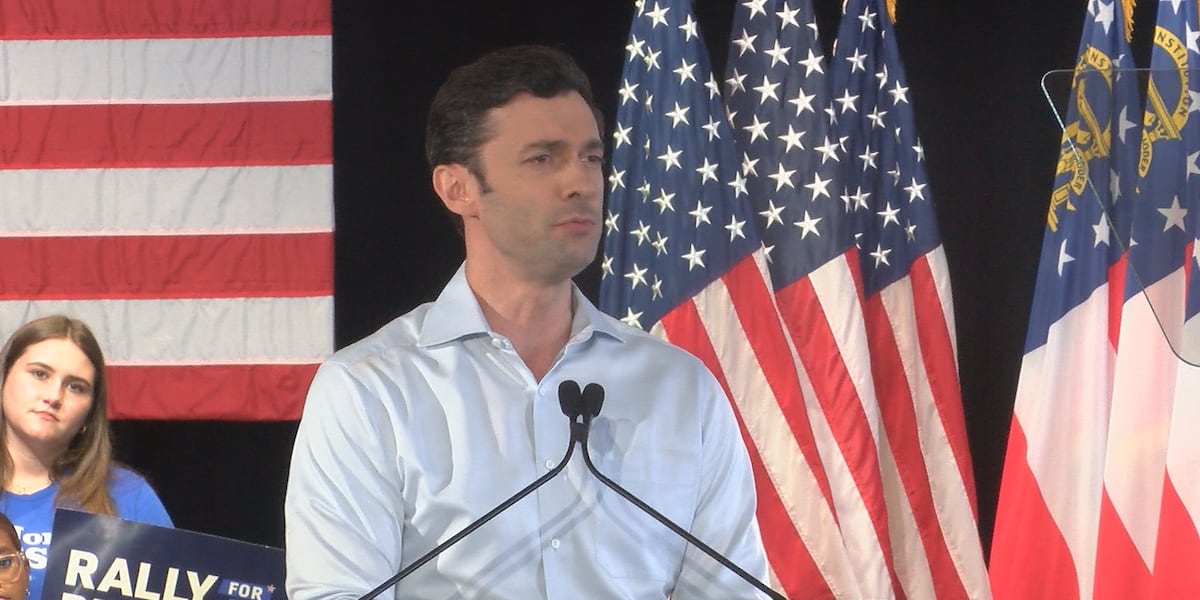
Savannah Voices Against the ‘One Big Beautiful Bill’
In the heart of Savannah, Georgia, a significant demonstration unfolded on a recent Saturday. Over a thousand concerned citizens converged in the downtown area, their voices raised in opposition to the newly enacted ‘One Big Beautiful Bill’ in Washington, D.C. The event, spearheaded by Democratic Senator Jon Ossoff, was aptly titled ‘Rally for Our Republic.’ The atmosphere was charged with a mix of frustration and determination, as residents expressed their anxieties about the bill’s implications. Senator Ossoff’s presence underscored the gravity of the situation, amplifying the call for scrutiny and reform. The rally served as a crucial platform for disseminating information, fostering public discourse, and galvanizing collective action against the perceived detrimental effects of the legislation. The core of the protesters’ discontent stemmed from the bill’s multifaceted impacts, encompassing changes to healthcare funding, tax policies, and national security allocations.
The palpable energy of the crowd was a testament to the deep-seated concerns about the bill’s potential consequences. The gathering wasn’t just a protest; it was a demonstration of civic engagement, a community’s assertion of its right to be heard. The voices of Savannah residents echoed with a shared resolve, demanding transparency and accountability from their elected officials. The rally’s success lay not only in the sheer number of participants but also in the diverse perspectives it represented, united by a common cause: safeguarding the interests of the community. The event underscored the vital role of public assemblies in democratic societies, serving as a reminder of the power of collective action in shaping policy and influencing change.
The ‘One Big Beautiful Bill’ was signed into law by President Trump on July 4, 2025, and its implications have already begun to stir debate across the nation. One of the most hotly contested aspects of the bill is its revision of Medicaid funding. This funding is vital, especially to those with limited financial means. Senator Ossoff highlighted the potential damage, pointing out the significant reliance on Medicaid for healthcare in Georgia. These concerns paint a vivid picture of the potential repercussions for Georgians, especially the most vulnerable members of society.
The Bill’s Controversial Components
The ‘One Big Beautiful Bill,’ officially signed into law on July 4, 2025, is a sweeping piece of legislation with a diverse range of provisions. The bill’s scope is extensive, encompassing crucial areas of the federal budget and policy, with implications for taxpayers, healthcare recipients, and the military alike. The bill’s most controversial elements include the extension of the 2017 Trump tax cuts, which critics argue disproportionately benefit the wealthy. Another focal point of contention is the allocation of increased funding for the military and border security, which has prompted discussions about national priorities and resource allocation.
The elimination of taxes on tips, a seemingly minor provision, has ignited debate regarding its potential impact on service workers and the fairness of the tax system. The combination of these elements underscores the bill’s complex nature and the wide-ranging consequences it has triggered. As such, the ‘One Big Beautiful Bill’ encapsulates a range of legislative initiatives that together aim to reshape economic, social, and security landscapes. The repercussions are varied, and the long-term effects of the bill are still unfolding, necessitating constant monitoring and critical analysis.
Medicaid’s Future Under Scrutiny
The central concern fueling the protests in Savannah revolved around the bill’s revisions to Medicaid funding. Medicaid serves as a lifeline for many residents, providing essential healthcare coverage for those with limited income. The bill’s alterations have fueled anxieties about the potential for reduced access to medical care. The concerns aren’t unfounded, as changes to funding could directly impact the availability of services, potentially leaving vulnerable populations at risk. Senator Ossoff articulated the detrimental impacts, stating that Medicaid covers 40% of all children in Georgia, 50% of all births, and 70% of all seniors.
Representative Buddy Carter, chair of the health subcommittee that drafted the bill, has defended the changes, arguing that they will make the program better by eliminating fraud and abuse, and ensuring that only eligible individuals receive benefits. Carter emphasized that the bill aims to ensure the program’s long-term sustainability, although his assertions are sharply disputed by opponents who fear the modifications will lead to an erosion of healthcare access. The debate highlights the delicate balance between fiscal responsibility and healthcare accessibility, a matter of profound significance for the residents of Savannah and beyond.
Differing Perspectives: A Clash of Visions
The debate over the ‘One Big Beautiful Bill’ has created a striking contrast between those who support its provisions and those who oppose them. Senator Ossoff and his allies argue the bill will hurt Georgians. They are concerned about the impact on Medicaid. Conversely, Representative Carter and his supporters believe the bill will enhance the program, ensuring its long-term viability.
This clash underscores a deeper ideological rift. This highlights contrasting views on the role of government, economic priorities, and social welfare. The divide is evident in the arguments presented by the two sides, each striving to persuade public opinion and mobilize support for their respective stances. The debate is a microcosm of broader national discussions, reflecting the complexities and challenges of policymaking in the face of differing values and goals.
A Summary of the Savannah Protests
The protest in Savannah was a pivotal moment, marking a collective expression of concern over the impacts of the ‘One Big Beautiful Bill.’ The demonstration highlighted the widespread anxiety among residents about the legislation’s potential to reshape their healthcare, economic prospects, and more. The event became a symbol of the community’s resolve to be heard. The voices of Savannah residents called for accountability and transparency. The rally was a powerful reminder of the importance of civic engagement in a democratic society.



